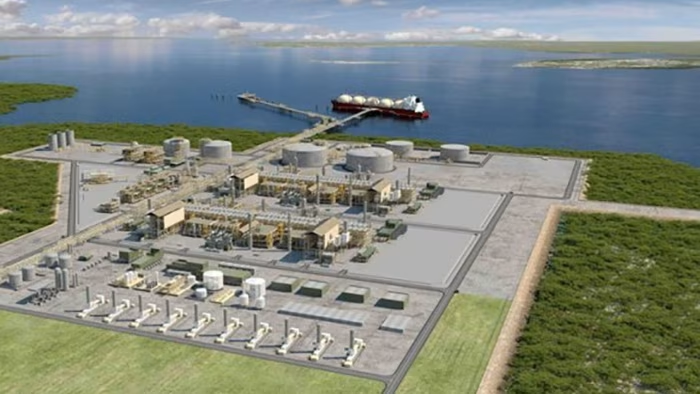Unlock the White House Watch newsletter for free
Your guide to what Trump’s second term means for Washington, business and the world
The US Export-Import Bank will invest $100bn to achieve President Trump’s plan for global energy dominance, with a first tranche of deals involving projects in Egypt, Pakistan and Europe, its new chair has said.
John Jovanovic, who was appointed in September, told the Financial Times that the government agency would finance efforts to secure US and allied supply chains for critical minerals, nuclear energy and liquefied natural gas to counter western reliance on China and Russia.
Ex-Im Bank was “back in a big way, and it’s open for business”, said Jovanovic in his first interview after taking over at the helm of the bank.
Its focus would be on bringing “US energy molecules to every corner of the globe” and on addressing the west’s over-reliance on critical mineral supply chains that “are no longer fair”, he said.
“We can’t do anything else that we’re trying to do without these underlying critical raw material supply chains being secure, stable and functioning.”
Ex-Im is one of several US government agencies that have been charged by the White House with supporting energy and mineral projects in an effort to grow domestic industry and shore up western supply chains.
The vulnerability of commodity flows has been thrown into sharp relief by the imposition by China this year of export restrictions on rare earth metals and magnets, as well as by the energy crisis in Europe following Russia’s full-scale invasion of Ukraine.
Jovanovic said Ex-Im’s early deals would include a credit insurance guarantee for $4bn of natural gas being delivered to Egypt by New York-based commodities group Hartree Partners, and a $1.25bn loan for the giant copper and gold Reko Diq mine being developed by Barrick Mining in Pakistan.
The bank said it authorised $8.7bn in new transactions in the 12 months to the end of September. This does not include a $4.7bn loan that was reapproved in March to support an LNG project in Mozambique led by France’s TotalEnergies.
Jovanovic said Ex-Im had $100bn left to deploy of the $135bn authorised by Congress.
Ex-Im was being “inundated” with requests for support for LNG projects coming from Europe, Africa and Asia, and a series of multibillion-dollar LNG supply deals would be announced in the coming days, he said.
While some development banks have climate change-related mandates that prevent them from investing in fossil fuels projects, Ex-Im cannot exclude them. Jovanovic said American LNG would be a “stabilising factor in providing energy security to parts of the world that need it most”.
Ex-Im’s increased focus on supporting LNG exports and energy security represents a shift of emphasis for the bank, which had been expanding support for renewable energy under former president Joe Biden. Last year it supported $1.6bn in green energy projects, an increase of 74 per cent compared to 2023.
Nuclear energy will be a focus under the bank’s new leadership. Ex-Im was “actively in discussions” about several nuclear projects in south-east Europe where US companies such as Westinghouse were looking to invest, said Jovanovic. It is also looking to back mining projects for uranium — used to make nuclear fuel — the flows of which have moved increasingly into China and Russia.
The White House has stressed the importance of breaking the dependency on China for metals including copper, which is widely used in infrastructure projects, and rare earths, which go into the defence, energy and technology sectors.
Ex-Im was planning to finance critical minerals projects “in a large way” and was working on deals that were “very near the finish line”, said Jovanovic. Much of what was in the pipeline was “orders of magnitude larger” than the $1.25bn Reko Diq loan, he said.
The White House penned a minerals supply deal with Australia in October and was working on similar deals with other nations that Ex-Im was “ready to be a part of,” he added.
Last year Ex-Im provided $5.9bn in medium-to-long-term export credit support, up from $4.7bn in 2023. This ranked it seventh behind the world’s leading export credit agencies, with China ($23.5bn) and Germany ($18.6bn) taking the top two spots, according to Ex-Im’s annual competitiveness report.
The report, which was published in June, warned Ex-Im was being outgunned by rival export credit agencies with James Cruse, Ex-Im’s acting chair at the time, writing: “Ex-Im is running a 20th century [export credit agency] now into the first quarter of the 21st century.”
